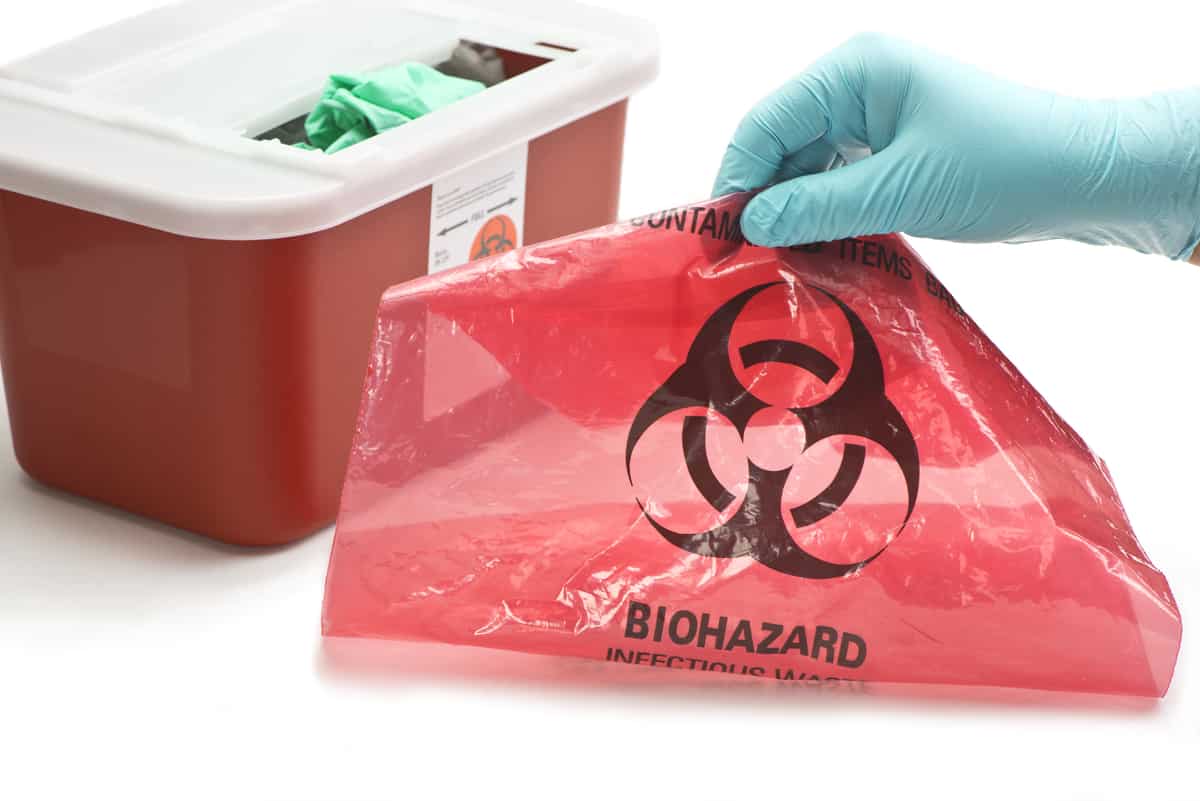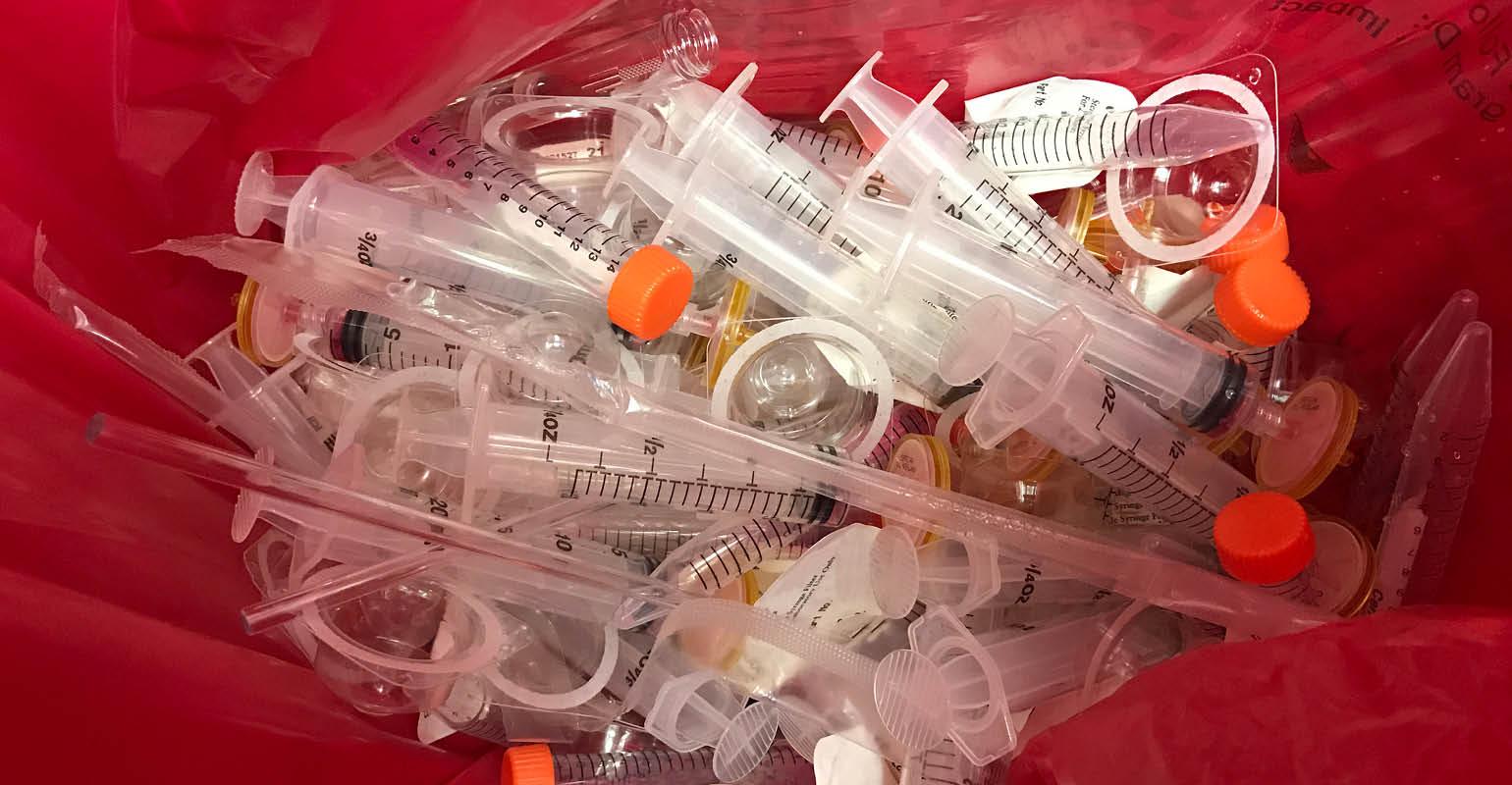Your Relied On Companion: Medical Waste Removal Services Tailored to Your Requirements
Your Relied On Companion: Medical Waste Removal Services Tailored to Your Requirements
Blog Article
Stay Ahead of Laws: Professional Advice on Medical Waste Disposal
In a globe where the healthcare industry is continuously progressing, it is necessary for clinical facilities to stay ahead of regulations when it comes to the correct disposal of clinical waste. From understanding the various classifications of medical waste to implementing the appropriate collection and segregation methods, this conversation will offer workable tips and useful understandings to assist facilities remain ahead of regulations in the ever-changing landscape of clinical waste disposal.
Recognizing Clinical Waste Categories
Comprehending clinical waste categories is necessary for appropriate disposal and monitoring in medical care facilities. Clinical waste describes any type of waste created by health care activities that might pose a danger to public health or the atmosphere. It is crucial to classify clinical waste accurately to guarantee its secure handling, transportation, treatment, and disposal.
There are a number of groups of medical waste that health care centers require to be familiar with. The most usual groups consist of contagious waste, pathological waste, sharps waste, pharmaceutical waste, and chemical waste. Each group has specific guidelines and guidelines for its correct administration and disposal.
Transmittable waste consists of materials contaminated with blood or other physical liquids, such as handwear covers, dress, and laboratory cultures. Pathological waste refers to human cells, organs, or body parts that need special delivery and disposal. Sharps waste consists of made use of needles, syringes, and other sharp items that can trigger injury and transfer infections. Pharmaceutical waste makes up ended, extra, or infected medicines that require mindful handling and disposal. Chemical waste consists of solvents, disinfectants, and other chemical compounds utilized in healthcare facilities.
Staying Up-To-Date With Regulatory Modifications
Remaining current with regulative adjustments is important for health care facilities to ensure conformity and appropriate management of clinical garbage disposal. medical waste removal services. With regulations continuously evolving, it is essential for health care facilities to remain current to stay clear of charges, penalties, and possible injury to the atmosphere and public health
To remain ahead of regulative changes, medical care facilities should develop a system for tracking and monitoring updates. This can be done by registering for regulative newsletters, going to workshops and meetings, and proactively getting involved in industry organizations. Additionally, centers need to assign a personnel or group accountable for remaining educated and distributing details to appropriate stakeholders.
Normal communication with regulative companies is additionally essential. Medical care facilities must develop partnerships with local, state, and government firms to ensure they understand any type of adjustments in policies that might influence their waste administration techniques. This can be done through regular conferences, participation in public comment durations, and aggressive engagement with regulatory companies.
Additionally, medical care facilities must think about partnering with waste management business that specialize in clinical garbage disposal (medical waste disposal services with WasteX). These companies are typically fluent in the current policies and can supply support and assistance to ensure compliance
Executing Appropriate Collection and Partition Methods
To properly manage medical waste disposal, healthcare facilities should establish appropriate collection and partition techniques based on regulative guidelines. Implementing these methods guarantees the safe handling and disposal of potentially hazardous materials, safeguards the atmosphere, and lessens the danger of infections and injuries to health care workers and the public.
Appropriate collection and partition approaches include the usage of designated containers and classifying systems. Health care centers should supply plainly classified containers for different sorts of clinical waste, such as sharps, transmittable waste, pharmaceutical waste, and non-hazardous waste. These containers must be color-coded and clearly look at this site marked to stay clear of complication and advertise simple identification.
In addition, health care facilities must train their staff on the correct treatments for gathering and segregating clinical waste. This consists of informing them on the different kinds of waste, the suitable containers to use, and the importance of adhering to standards and regulations. Routine training sessions and correspondence course should be performed to make certain that employee stay up-to-date on ideal practices.
Furthermore, medical care facilities need to establish a system for normal collection and disposal of medical waste. This may entail partnering with certified waste monitoring companies that concentrate on medical garbage disposal. These companies will certainly guarantee that the accumulated waste is delivered and gotten rid of in conformity with regulatory requirements.
Selecting the Right Disposal Approaches

Incineration is among one of the most common and efficient techniques for disposing of certain sorts of medical waste, such as pathological waste and sharps. It involves the controlled combustion of waste at heats, decreasing it to ash. Nevertheless, incineration can release harmful pollutants right into the air and add to air contamination.

Other disposal methods consist of chemical therapy, microwave treatment, and landfilling. Chemical treatment entails making use of chemicals to sanitize and reduce the effects of the waste. Microwave therapy utilizes microwave power to heat and disinfect the waste. Landfilling involves hiding the waste in an assigned garbage dump area (medical waste disposal services with WasteX). Landfilling ought to be the last resort due to the prospective threat of contamination to dirt and groundwater.
Making Certain Conformity Through Paperwork and Training
After carefully considering the ideal disposal methods for clinical waste, health care facilities should make certain conformity with policies and reduce environmental influence by applying effective documents and training treatments. This find more information step is crucial in maintaining a lasting and risk-free atmosphere for both healthcare workers and the basic public.

Healthcare employees that manage clinical waste needs to receive suitable training on waste partition, dealing with, and disposal procedures. By providing extensive training, medical care facilities can encourage their personnel to make educated choices and lessen the risk of incorrect waste disposal.
Verdict
To conclude, remaining ahead of laws in medical garbage disposal is vital for health care facilities. medical waste removal. Recognizing the different groups of medical waste, remaining upgraded with regulatory adjustments, applying proper collection and segregation methods, choosing the suitable disposal methods, and ensuring conformity via documents and training are all vital steps. By adhering to these guidelines, healthcare companies can properly handle and get rid of of clinical waste in a safe and liable fashion
From comprehending the various groups of medical waste to implementing the appropriate collection and segregation methods, this conversation will certainly offer valuable insights and workable tips to assist facilities stay in advance of policies in the ever-changing landscape of clinical waste disposal. - medical waste disposal services with WasteX
The most common classifications include transmittable waste, pathological waste, sharps waste, pharmaceutical waste, and chemical waste. Healthcare facilities should offer plainly classified containers for various kinds of clinical waste, such as sharps, transmittable waste, pharmaceutical waste, and non-hazardous waste. Healthcare facilities must develop a comprehensive system to record and track all aspects of medical waste disposal, including types of waste generated, amounts, and disposal approaches made use of. Medical care employees that take care of clinical waste needs to get appropriate training on waste segregation, handling, and disposal procedures.
Report this page